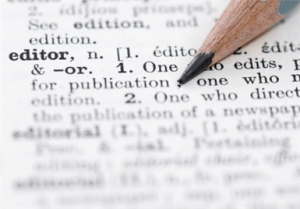When it comes to editing and proofreading, there are many factors to consider. When writing, the main goal is to make sure the message is communicated clearly and effectively. The purpose of the writing project should be known from the very beginning. But what happens when poor grammar and minor mistakes are in the way? The message is lost and the errors distract the readers. Remember the suggested approaches below to avoid common writing errors and keep your audience interested:
Always write in the active voice
- Active and passive voice can be used in any type of writing. However, active voice is the clearest. As you proofread your writing, pay attention to verb usage; is the subject of the sentence “performing” the action or is it “receiving” the action? Keep your subject at the beginning of the sentence instead of the end to alleviate this problem and maintain a consistent level of writing.
- Passive voice: Those shoes were purchased by me.
- Active voice: I purchased those shoes.
Read your writing out loud
- If you read your piece of writing silently, it is very easy to ignore grammar mistakes. Because we know our intentions and what we are trying to say, it is easy for us to ignore these errors. Once we slow down and read our writing out loud, we find those mistakes that could distract the audience. We can hear the missing words, mechanical issues, redundancies, etc. You don’t have to read your project to anyone else, just yourself!
Check for redundancies
- Have you ever found yourself repeating words or ideas in your writing? This happens to us all! As you read through your first draft, highlight any words that repeat or sentences that are similar to one another. You may find that you can combine your ideas into one sentence and use a thesaurus to change your word choice.
Read backwards
- This probably sounds like a strange approach, but it is very useful when trying to catch spelling mistakes! By reading backwards, you are able to isolate your language and how it is used. You will notice individual words instead of your key ideas. Keep in mind this will not help if you are checking for gaps in the content.
Interview yourself
- Now is your chance to be the investigative reporter lurking inside of you! (Is that just my fantasy?) After you have checked for grammar and spelling errors, read your piece of writing again and focus on your overall message. Ask yourself questions like these:
- Did I give enough details to prove my purpose?
- Do I sound credible? Have I included enough research or factual information to prove my points?
- Is there extra information I can remove?
- Did I contradict my own ideas?
These are just a few of my tips and tricks to help you during the editing process. Try a few or all of them to see which will work best for you! Just remember the most important rule of thumb: state your purpose clearly to help your audience understand your writing, and remember to have fun!
Until next time,
Colleen


I have a tendency to write a thought & not develop it sufficiently or I write & think I’m clear until my partner daughter reads it and says, what do you mean by that? I’m fortunate to have her as my editor. Writing is really an art. Not my favorite.
Roz, most people either love writing or it’s their nemesis. I didn’t appreciate it until I took classes in college. That’s when I learned to enjoy the writing and editing process!
Great tips Colleen and I would say I do incorporate them all into my own writing and editing process. Reading the piece out loud really helps to highlight any places where flow and punctuation are off. I’d also add that the more you do practice editing, the easier it becomes. I love the writing process and yet, find the editing often dreary and less fun. Having an eagle eye also helps me, as mistakes seem to jump off the page not only when checking my own work, but when reading other people’s work my eye is drawn to the errors that somehow escaped their eye. Thanks for sharing the tips and I know they’ll help others take editing…much more seriously.
Beverley, it is so important for authors and anyone to have another set of eyes on a project before it goes “final.” That fresh set of eyes that aren’t familiar with a project can pick up things others too close to the project miss because they become “normal” for those too involved. Thanks for the comment about “the more you do it, the easier it becomes.” It is true; I started editing patient notes 20 years ago and those need to be perfect so that’s when my editing took a turn towards more perfection than I usually put on myself!